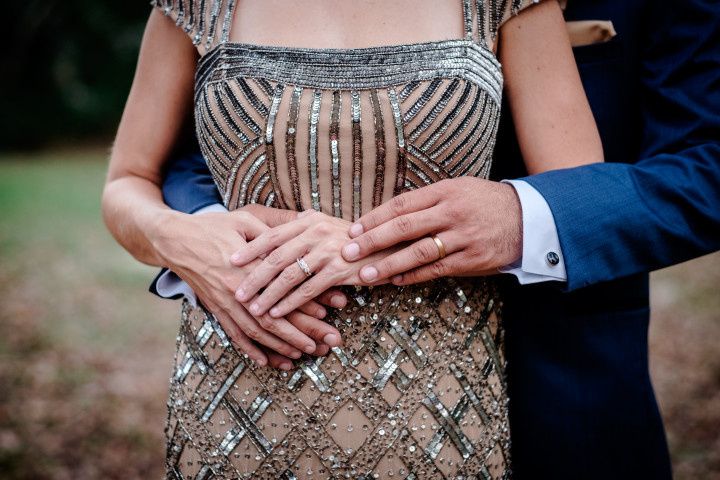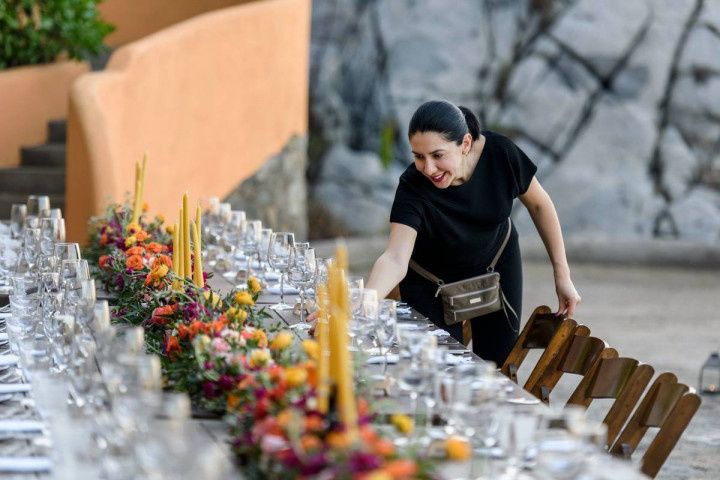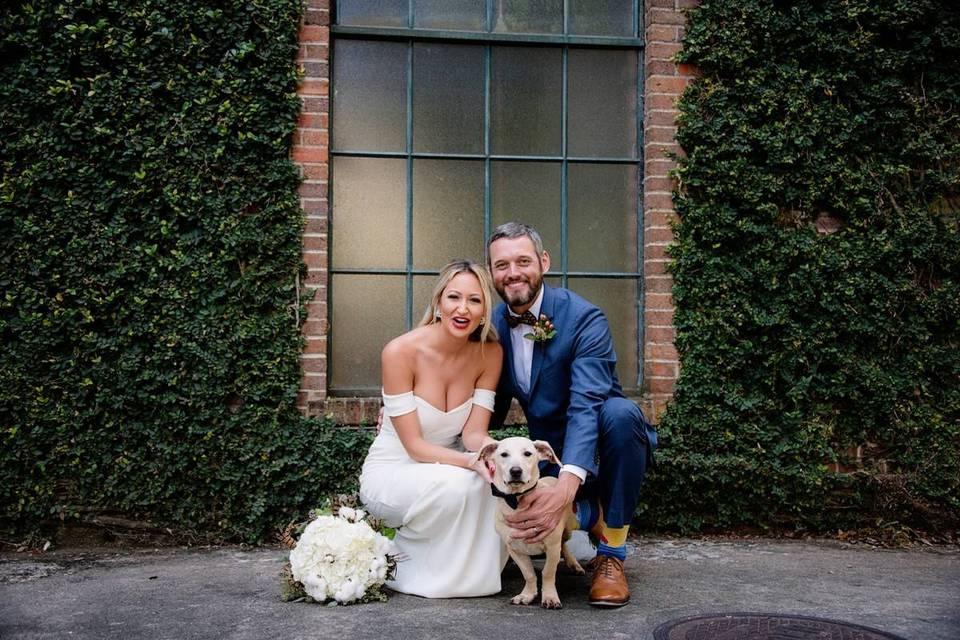Why You and Your Fiancé Should Plan That Wedding Together
Splitting up control doesn’t mean rescinding all input.


Photo: Artsinfotos Photography
Here’s a little gossip: The only time my husband Joe and I have ever fought in our relationship (so far!) was while we were planning our wedding. (OK, and when Joe loads the dishwasher like a dang fool.)
They were spats and arguments more than full-blown, don’t-speak-for-days fights, but nevertheless, they were significant, loud and plentiful. Sometimes there were tears and other times there was foot-stomping and occasionally there was both. Every time, after the 15 or so minutes that each quarrel lasted, we’d look at each other and say: “What the hell are we doing?”
Even though the topics ran the gamut, the underlying cause for every fight always boiled down to the same thing: I felt like all the work was on me; Joe felt like I had shut him out from the beginning and he was permanently disadvantaged from then on. I felt like he didn’t care; Joe felt like I set him up to not care. I asked him for help and opinions at the very last minute when things were a total stressful mess; Joe felt like at that point he was so uninformed he couldn’t offer the level of help and opinions I needed. It wasn’t fair to either of us.
This, I realized far too late in the game, is a great paradox of the planning industry: So much of it is directed solely toward brides, making it seem like it’s our job alone to take on the enormous task of planning the wedding and all related events. But then if anyone asks, planning was a blissful bonding experience for both members of the couple where they both worked in perfect harmony to let their unique personalities shine as one. Do it all yourself, but make sure to do it all together. Yeah, sure!
My advice? Dispose of the “do it all yourself” part on Day 1. Don’t make the mistake I did and get in far too deep while icing out any support from your partner because you think he doesn’t care or doesn’t belong at the decision-making table. He does—he’s the one who started this whole thing, remember? So, sit down together and divvy up the tasks. Come to terms with the fact that there will be a list of things he will take on that you cannot have control over—and vice-versa. And no, this is not meant to be psychological torture—so don’t put him in charge of flowers if he thinks “drugstore roses” when you say “bouquet.” Rather, each of your tasks should be relevant to your interests. If he’s design-minded and plays guitar, put him in charge of stationery and music. Oh, and? Splitting up control doesn’t mean rescinding all input. You’ll both collaborate on every element of planning, but this way, not every task will begin and end with you.
Another big part of sharing the load is sharing the vision. Your fiancé is your teammate—not your employee! And as much as they want to help you plan, they also have ideas and—yes—even dreams about their perfect wedding day. So make room in your inspiration boards for their stuff, and get ready to be flexible. Letting go of a few of your precious must-haves that your fiancé simply can’t get behind (“Who the hell wants a cake with no frosting?”) might make you wince at first, but the end result will be a wedding that was truly planned by you both, and speaks to you both—which is priceless.
So—sharing the planning and the inspiration is important for all couples on the road to the aisle, unless you enjoy living room tussles about the complexities of table assignments so loud your neighbors three floors below can hear (and choose sides). Right, got it. But what if your significant other doesn’t want to be involved? Even if he earnestly tells you he trusts you completely and wants you to take the reins from the very beginning, you’re both still setting yourselves up for conflict later on (like two weeks out from your wedding day, when the miniature local hot sauce favors start hitting the fan). It’s not fair to you to do it all and it’s not ideal to start your marriage without undergoing this incredibly effective teamwork training phase.
Those “Get Him Involved!” tips you see in wedding mags? Not really gonna move him, I’m afraid. Dangling a groom’s cake in the shape of a football helmet in front of his eyes like a grand prize for calling the lighting guy once isn’t exactly the kind of teamwork that makes the dream work. Instead, remind him that your wedding is an adventure you embarked on together, and explain to him how important it is that the day represents both of you equally. Tell him it’ll give you enormous peace of mind to know he’s got your back here, and remind him that this is just the first of many projects you’ll have to to work together on once you’re married. Finally, remind him that it can—and should!—be fun!
Even though Joe and I learned all this a little too late in the process—long after I’d dug myself into an unnecessarily deep hole of doing most of the work myself, and pulling out most of my hair, too—I’m glad we went through it at all, because it was an important lesson to learn about married life in general. Before planning this wedding, I didn’t know we had work to do in the communication/collaboration department (how shocking that our relationship wasn’t perfect!), and I didn’t know I was a control freak to a fault. Luckily, our wedding day turned out great, and I ended up being able to lean on Joe quite a bit in the final few weeks of planning. And now, armed with lessons learned, we work together better than ever—from planning our belated honeymoon to buying a fancy new couch, we’ve come to lots of big decisions with level heads, open minds and harmony as a priority, just the way it should be.





